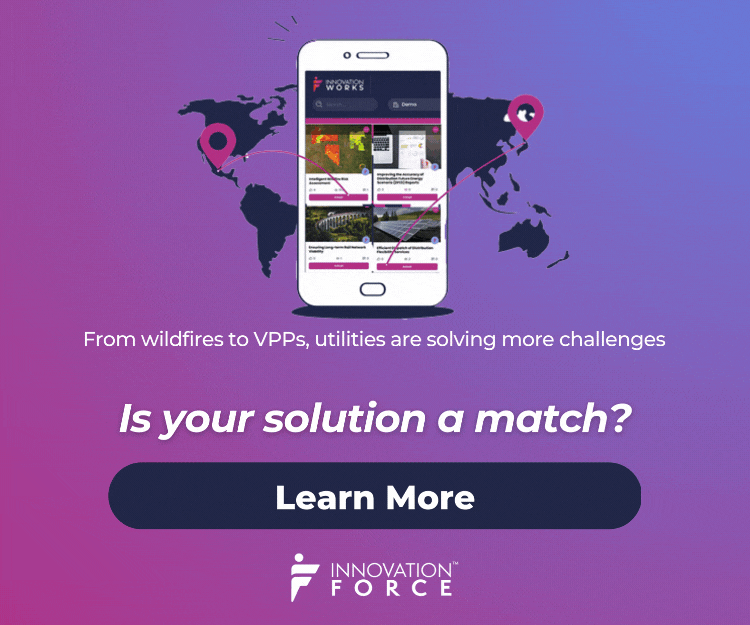We are in the midst of a green revolution. At least, we might be if we can identify, attract and integrate enough workers to satisfy the surging demand for renewable energy products.
The Washington Post reported in April 2023 that “many construction and manufacturing companies worry they won’t be able to hire enough clean-energy workers to make batteries and build wind or solar farms.”
Fortunately, it’s not all bad news on the talent front. Young workers are excited about and interested in renewable energy jobs.
One report found that 18-29-year-olds comprised one-third of the solar workforce last year, and companies are ramping up their recruitment efforts, anticipating continued growth in the months and years ahead, including increasing their outreach to students by 86% in the past year.
However, candidate volume isn’t the only potential impediment to progress. Integrating different generations threatens to undermine continuity and create new conflicts that erode progress and productivity.
In many ways, GenZ (along with millennials) is the generation most concerned with climate change, and integrating this younger, activated workforce with an older, less-concerned cohort can be incredibly challenging.
In other words, as green energy companies work to recruit a younger workforce, they will need to understand the generational challenges that inevitably accompany these efforts, readying the companies to implement thoughtful strategies for making their workforce more responsive and resilient.
The challenges of recruiting and maintaining a multi-generational workforce
Most companies understand that a multi-generational workforce is critical to long-term success and sustainability, combining institutional knowledge and established loyalty with young talent and novel skill sets. Eighty percent of global c-suite leaders say that a multi-generational workforce is “key to growth.”
Notably, to recruit, integrate and retain top talent from the burgeoning GenZ talent pool, green energy companies will need to address the following:
- Retention and capability: Companies must address concerns about maintaining safety, meeting demand and making the industry attractive to increasingly selective workers.
- Cultural workplace environment: Companies must provide a culture that offers autonomy, taps into creativity and moves away from a lifelong commitment model to something more flexible and adaptive to the new generation's needs.
- Collaboration across generations: Companies must recognize the importance of intelligent collaboration between younger millennials, Gen X, Gen Z and older generations, aiming for mutual gain, trust and relationship building.
Anticipating these challenges positions leaders to take proactive steps to foster resilient and adaptive teams that can propel their green energy efforts forward.
Leaders can provide the solutions
Of course, understanding that impact is possible and enacting change don’t necessarily go hand-in-hand. For leaders looking to maximize their influence in the year ahead, here are four steps to get you started today.
#1 Make the industry attractive
To appeal to this new generation of workers who are often reluctant to commit to one industry or a lifetime career, the renewable energy sector must link its mission to something greater. By connecting the work of the power industry with the larger goal of contributing to saving the planet and having work that challenges and stretches both intellect and relational capability, the industry can position itself as an attractive option.
“Purpose” is increasingly connected to employee satisfaction and retention, and GenZ employees are especially vigilant about identifying and enacting their purpose at work. As one Deloitte report helpfully concludes, GenZ employees “want agency to create a future that they find meaningful.”
#2 Build human relationships
The workplace culture needs a significant shift to entice the next generation. This shift includes providing a certain amount of autonomy, tapping into creativity and allowing for short- and long-term commitments.
The traditional apprenticeship model, which has dominated the recruitment process in the power industry, may no longer be appealing. Instead, a culture that promotes innovation, personal growth and flexibility will resonate more with the new generation.
#3 Create clear processes and co-creation
A significant win-win possibility exists in fostering intelligent and effective collaboration across generations. The blend of technical knowledge and adaptability creates a synergy that enhances efficiency and innovation. Trust and rapport can be built, enriching perspectives and recognizing both generational differences and similarities.
#4 Share the responsibility for success
Ensuring all team members feel accountable for delivering on the processes starts with ensuring that every team member is on the same proverbial page.
To overcome misunderstandings, there must be a willingness to check for understanding and to acknowledge the value of experience and wisdom.
This is especially crucial in areas like safety, where the hard-earned wisdom of seasoned workers is invaluable. A culture that encourages humility and respects the lessons of the past, while embracing the adaptability and creativity of the new generation is key.
A strategic vision for a multi-generational future
In the midst of our evolving green revolution, the renewable energy sector's success hinges on effectively merging the wisdom of the past with the innovation of the present.
Bridging the generational divide is not just a task for human resources; it's a cornerstone for sustainable growth. By emphasizing safety, nurturing collaboration, fostering innovation and crafting an environment attuned to everyone's values and needs, the industry can ensure a sustainable talent pool and play a pivotal role in the future of global energy.
Simply put, bridging generational gaps while harnessing the unique strengths of both older and younger generations is more than a human resources task. Like a caterpillar sheds its skin and becomes something entirely new and better, we have the ability to put off our old ways while fostering a new, better vision for the future.
 Michael J. Reidy, a senior consultant at Interaction Associates, has more than 25 years of experience in consulting and responding to the learning needs of adults in the financial services, biotech, power and service industries. Reidy’s interest is in adult education, and his belief is that the workplace has become the “third place” of learning and development for the 21st century. Reidy holds a master’s degree in public administration from the HKS, Harvard University.
Michael J. Reidy, a senior consultant at Interaction Associates, has more than 25 years of experience in consulting and responding to the learning needs of adults in the financial services, biotech, power and service industries. Reidy’s interest is in adult education, and his belief is that the workplace has become the “third place” of learning and development for the 21st century. Reidy holds a master’s degree in public administration from the HKS, Harvard University.





